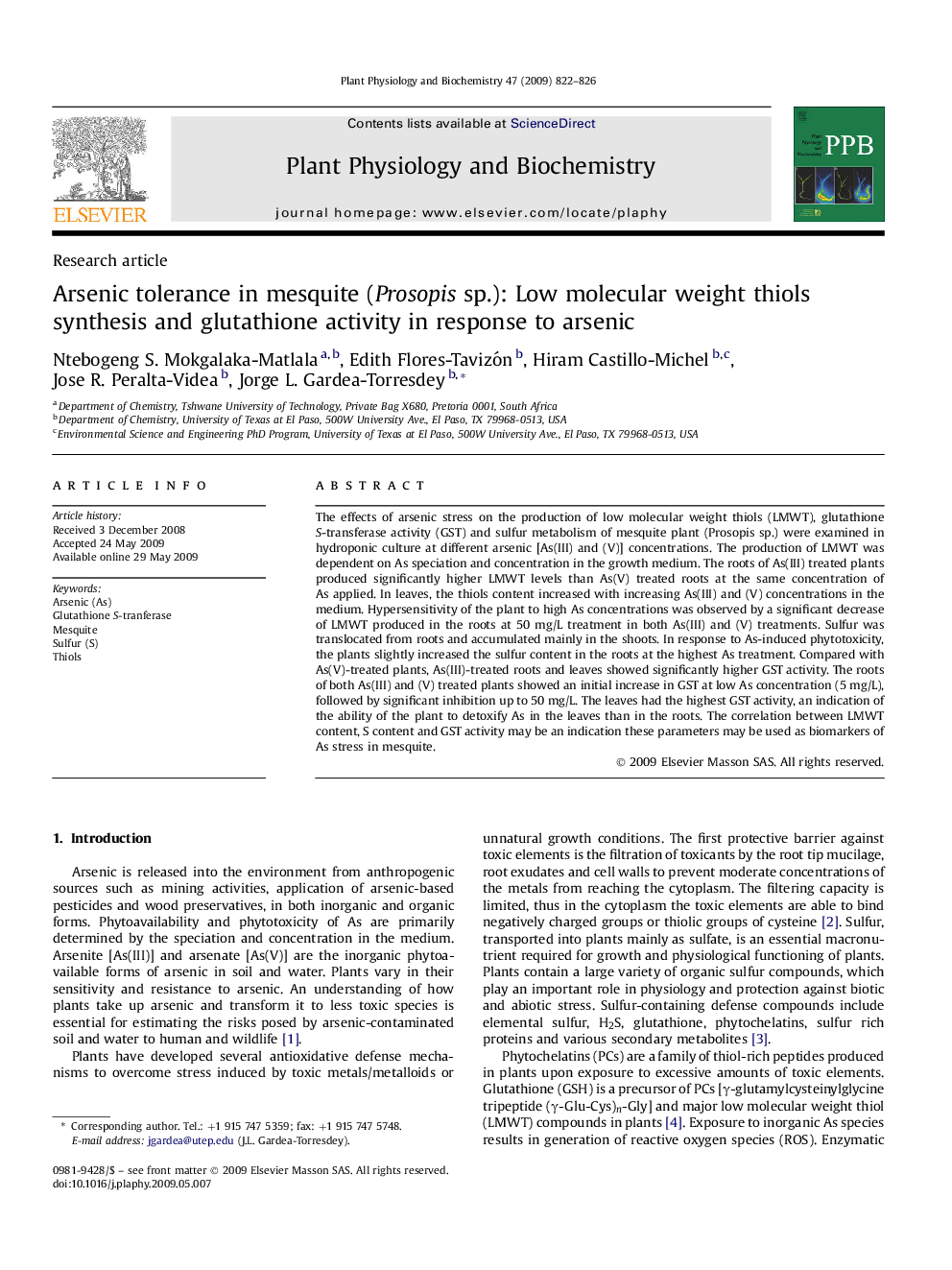| Article ID | Journal | Published Year | Pages | File Type |
|---|---|---|---|---|
| 2016710 | Plant Physiology and Biochemistry | 2009 | 5 Pages |
The effects of arsenic stress on the production of low molecular weight thiols (LMWT), glutathione S-transferase activity (GST) and sulfur metabolism of mesquite plant (Prosopis sp.) were examined in hydroponic culture at different arsenic [As(III) and (V)] concentrations. The production of LMWT was dependent on As speciation and concentration in the growth medium. The roots of As(III) treated plants produced significantly higher LMWT levels than As(V) treated roots at the same concentration of As applied. In leaves, the thiols content increased with increasing As(III) and (V) concentrations in the medium. Hypersensitivity of the plant to high As concentrations was observed by a significant decrease of LMWT produced in the roots at 50 mg/L treatment in both As(III) and (V) treatments. Sulfur was translocated from roots and accumulated mainly in the shoots. In response to As-induced phytotoxicity, the plants slightly increased the sulfur content in the roots at the highest As treatment. Compared with As(V)-treated plants, As(III)-treated roots and leaves showed significantly higher GST activity. The roots of both As(III) and (V) treated plants showed an initial increase in GST at low As concentration (5 mg/L), followed by significant inhibition up to 50 mg/L. The leaves had the highest GST activity, an indication of the ability of the plant to detoxify As in the leaves than in the roots. The correlation between LMWT content, S content and GST activity may be an indication these parameters may be used as biomarkers of As stress in mesquite.
